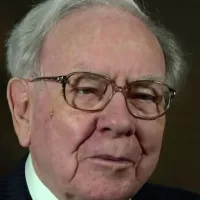Nebraska, located in the Midwestern United States, is the 16th largest state by area but sparsely populated, ranking 38th in population. Admitted to the Union in 1867, it's unique for its unicameral legislature and non-partisan elections. Nebraska's capital is Lincoln, while Omaha, situated on the Missouri River, holds the title of the most populous city.
1912: Founding of the Omaha NAACP Chapter
In 1912, the Omaha chapter of the National Association for the Advancement of Colored People (NAACP) was established by African Americans to advocate for better conditions within the city and state.
1919: Omaha Race Riots
The Omaha Race Riots erupted in 1919, fueled by white rioters protesting an alleged sexual assault of a white woman by a black man, highlighting racial tensions in the city.
1922: Construction Begins on the Nebraska State Capitol
Construction began on the third Nebraska State Capitol building in 1922, designed by Bertram G. Goodhue.
1924: Invention of the Vise-Grip
In 1924, William Petersen invented the Vise-Grip locking pliers in De Witt, Nebraska.
1927: Invention of Kool-Aid
Edwin Perkins invented Kool-Aid in Hastings, Nebraska, in 1927.
1930: The Great Depression's Impact on Nebraska
Beginning in 1930, the Great Depression significantly impacted Nebraska's residents, leading to economic hardship throughout the state.
1932: Completion of the Nebraska State Capitol
The third Nebraska State Capitol building was completed in 1932.
1934: Nebraska Residents Pass Unicameral Legislature Initiative
In 1934, Nebraska residents voted in favor of an initiative to establish a unicameral legislature.
1934: Nebraska Adopts a Unicameral Legislature
In 1934, during the Great Depression, Nebraska voters approved a constitutional amendment to establish a unicameral legislature, making it the first and only state to do so. This reform abolished the state's House of Representatives.
July 24, 1936: Nebraska's Record High Temperature
Nebraska experienced its highest-ever recorded temperature of 118°F (48°C) in Minden on July 24, 1936.
1936: The Dust Bowl's Effect on Nebraska
From 1930 to 1936, Nebraska experienced the Dust Bowl due to drought, wind, and widespread soil erosion across the Midwest.
1937: First Session of Nebraska's Unicameral Legislature
The first session of Nebraska's unicameral legislature convened in 1937, marking a significant shift in the state's legislative structure.
1940: Start of Republican Dominance in Nebraska
Since 1940, Nebraska has consistently voted Republican in presidential elections, highlighting a trend of strong Republican support.
1950: College World Series Begins in Omaha
The College World Series found a permanent home in Omaha, Nebraska, starting in 1950.
1964: Lyndon B. Johnson Wins Nebraska
Breaking from its usual voting pattern, Nebraska favored Lyndon B. Johnson, a Democrat, in the 1964 presidential election.
1975: Nebraska Outlaws Marital Sexual Assault
Nebraska became the first U.S. state to criminalize sexual assault within marriage in 1975.
1980: Nebraska Divests from South Africa
In 1980, Nebraska became the first U.S. state to divest from South Africa, taking a stand against the country's apartheid system.
Nov 4, 1986: Kay Orr becomes Nebraska's first female governor
On November 4, 1986, Kay Orr was elected as Nebraska's first female governor.
1990: Declining Populations in Rural Nebraska
Between 1990 and 2000, 53 of Nebraska's 93 counties saw a decrease in population, with losses ranging from 0.06% to 17.04%.
1991: Nebraska Adopts Split Electoral Votes
Nebraska passed a law in 1991 allowing for a split in its allocation of electoral votes during presidential elections.
1992: Taxation of Personal Property in Nebraska
Since 1992, Nebraska has only levied taxes on depreciable personal property, exempting all other personal property from taxation.
2000: Declining Populations in Rural Nebraska
Between 1990 and 2000, 53 of Nebraska's 93 counties saw a decrease in population, with losses ranging from 0.06% to 17.04%.
2000: Population Growth in Omaha and Lincoln
In 2000, Omaha had a population of 390,007, and Lincoln had a population of 225,581.
2004: George W. Bush Wins Nebraska by a Large Margin
George W. Bush secured a significant victory in Nebraska during the 2004 presidential election, further solidifying the state's Republican leanings.
2004: Per Capita Personal Income in Nebraska
Nebraska's per capita personal income in 2004 was $31,339, ranking 25th in the United States.
2005: Omaha's Population Growth
By 2005, Omaha's estimated population had risen to 414,521 (427,872 including Elkhorn), reflecting a 6.3% increase in five years.
2006: Ben Nelson Re-elected to the Senate
The re-election of Ben Nelson, considered the most conservative Democrat in the Senate at the time, in 2006 reflected a conservative trend in Nebraska's political landscape.
2008: Chuck Hagel Retires from the Senate
Chuck Hagel's retirement from the Senate in 2008 marked a shift in Nebraska's political landscape.
2008: Nebraska Splits Electoral Votes for the First Time
In a historic event, Nebraska divided its electoral votes in the 2008 presidential election, with John McCain winning two districts and Barack Obama securing one.
2008: Closure of the Vise-Grip Plant
The Vise-Grip plant in De Witt, Nebraska, closed in 2008, and production was moved to China.
March 2009: Warren Buffett Ranked Second-Richest Person
In March 2009, Forbes magazine ranked Warren Buffett, CEO of Berkshire Hathaway based in Omaha, as the second wealthiest individual globally.
2010: Largest Religious Denominations in Nebraska
As of 2010, the Roman Catholic Church, Lutheran Church-Missouri Synod, Evangelical Lutheran Church in America, and United Methodist Church were the largest religious denominations in Nebraska based on the number of adherents.
2010: Classification of Cities and Villages in Nebraska
As per the 2010 census, Nebraska had 530 cities and villages categorized into five classifications based on population.
2010: Nebraska's Gross State Product
Nebraska's gross state product was estimated at $89.8 billion in 2010, according to the Bureau of Economic Analysis.
2010: Population Growth in Omaha and Lincoln
The 2010 census recorded Omaha's population as 408,958 and Lincoln's population as 258,379, a 14.5% increase from 2000.
2010: Nebraska's Population Growth
The 2020 United States Census reported Nebraska's population as 1,961,504 on April 1, 2020, a 7.4% rise since the 2010 census.
2010: Last College World Series at Rosenblatt Stadium
The final College World Series held at Omaha's Rosenblatt Stadium took place in 2010, marking the end of an era for the iconic venue.
2011: Minority Population Among Infants in Nebraska
In 2011, 31.0% of Nebraska's population under one year old belonged to minority groups.
2011: College World Series Moves to Charles Schwab Field Omaha
In 2011, the College World Series moved to its new location, Charles Schwab Field Omaha, after being held at Rosenblatt Stadium for many years.
2012: Deb Fischer Elected to the U.S. Senate
Deb Fischer, a Republican, was elected to represent Nebraska in the U.S. Senate in 2012.
2012: Micropolitan Areas Data
Population data for micropolitan areas in Nebraska is based on 2012 estimates.
2013: Ben Nelson Retires from the Senate
Ben Nelson's retirement from the Senate in 2013 marked a turning point in Nebraska's political representation, as his seat was filled by a Republican.
2013: Changes in Birth Data Collection
From 2013 to 2015, birth data collection methods led to an overrepresentation of Hispanics due to double-counting by ethnicity and race.
2014: Religious Affiliations in Nebraska
A 2014 Pew Research Center survey indicated that Christianity was the predominant religious affiliation in Nebraska.
2015: Changes in Birth Data Collection
From 2013 to 2015, birth data collection methods led to an overrepresentation of Hispanics due to double-counting by ethnicity and race.
2015: Mike Johanns Retires from the Senate
Mike Johanns retired from the Senate in 2015, leaving his seat to be filled by another conservative Republican.
December 2016: Lifting the Ban on Driver's Licenses for Dreamers
Nebraska lifted its ban on issuing driver's licenses to Dreamers (undocumented immigrants brought to the U.S. as children) in December 2016, becoming the last state to do so.
2016: Hispanic or Latino Population in Nebraska
According to the 2016 American Community Survey, 10.2% of Nebraska's population identified as Hispanic or Latino.
2016: Refugee Resettlement in Nebraska
Nebraska, especially Lincoln, saw a significant influx of refugee communities in 2016, hosting the highest number of refugees per capita nationwide and becoming a prominent location for Yazidi refugees.
2016: Changes in Birth Data Collection
Since 2016, birth data for White Hispanics are no longer collected separately but are included within a broader Hispanic group.
2017: Metropolitan Areas Data
Population data for metropolitan areas in Nebraska is based on 2017 estimates.
2017: Population Figures for Cities and Villages
Unless otherwise specified, all population data for Nebraska's cities and villages are based on 2017 Census Bureau estimates.
April 1, 2020: Nebraska's Population Growth
The 2020 United States Census reported Nebraska's population as 1,961,504 on April 1, 2020, a 7.4% rise since the 2010 census.
2020: Nebraska Splits Electoral Votes Again
Nebraska's electoral votes were split once more in the 2020 presidential election, with Joe Biden winning one district.
2020: Religious Affiliations in Nebraska
In 2020, the Public Religion Research Institute reported that 73% of Nebraska's population identified as Christian, with 22% being religiously unaffiliated.
October 2021: Record Low Unemployment Rate in Nebraska
Nebraska attained its lowest-ever recorded unemployment rate of 1.9% in October 2021, marking a significant economic milestone.
2022: Estimated Homeless Population in Nebraska
The Housing and Urban Development (HUD) 2022 Annual Homeless Assessment Report estimated 2,246 homeless individuals in Nebraska.
2022: Racial Composition of Nebraska's Population
This data reflects the racial composition of Nebraska's population as of 2022.
January 23, 2023: Pete Ricketts Takes Office as Nebraska Senator
Pete Ricketts assumed office as a U.S. Senator for Nebraska on January 23, 2023.
Mentioned in this timeline

Barack Obama the th U S President - was the...

George W Bush the rd U S President - is...

Joe Biden is an American politician who served as the...

Warren Buffett is a highly successful American investor and philanthropist...

The Catholic Church the largest Christian church globally with over...
China officially the People's Republic of China is an East...
Trending

54 minutes ago Severe Thunderstorm Warning Issued for Central California; Funnel Clouds Possible, Gusty Showers Expected

54 minutes ago Iva Jovic Observed Jessica Pegula; Jovic Wins in Dubai First Round.

55 minutes ago Randy Fine faces censure and calls for resignation after anti-Muslim post.

55 minutes ago Magda Linette Dominates in Dubai, Defeats Tauson and Extends Winning Streak Against Russian Opponents

55 minutes ago Amanda Anisimova Dominates in Dubai, Reaches Quarterfinals After Court Return

2 hours ago Clara Tauson advances in Dubai, defeating Stearns and facing Linette next.
Popular

Jesse Jackson is an American civil rights activist politician and...
Randall Adam Fine is an American politician a Republican who...

Pam Bondi is an American attorney lobbyist and politician currently...

Barack Obama the th U S President - was the...

Kid Rock born Robert James Ritchie is an American musician...

XXXTentacion born Jahseh Dwayne Ricardo Onfroy was a controversial yet...